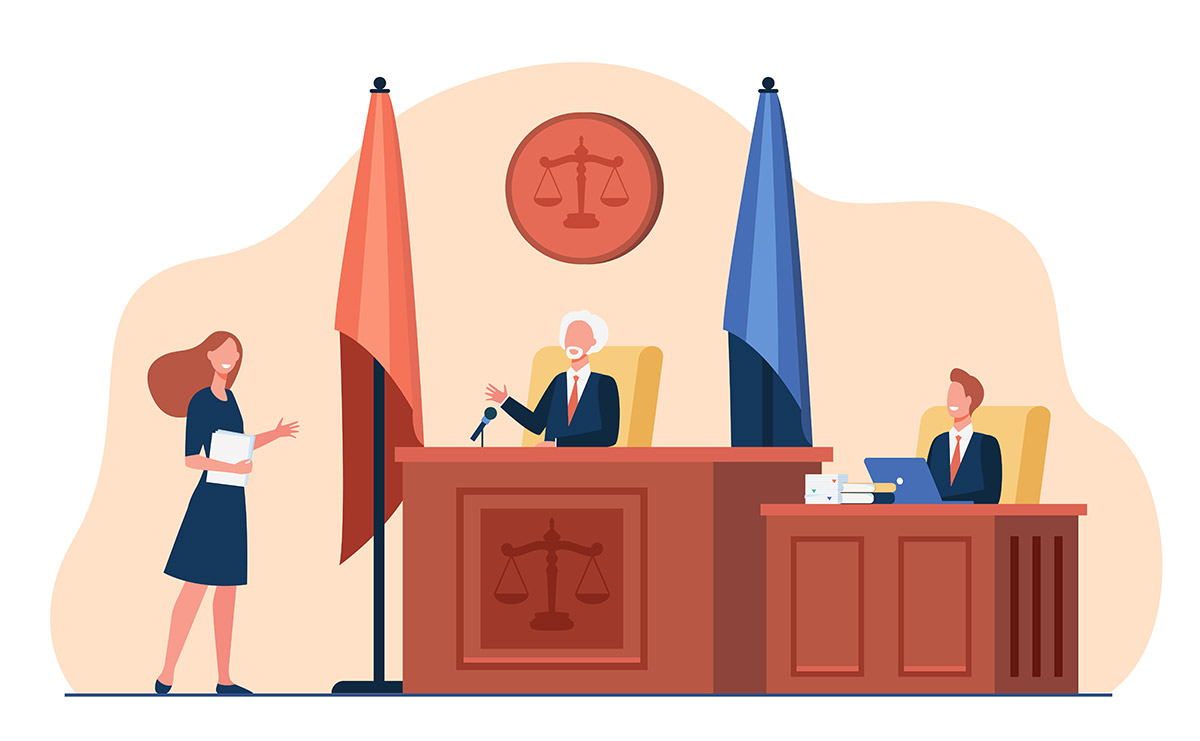Contents
The Role of Special Counsels: What They Do and Why They Matter
In the complex realm of legal practice, some roles carry significant weight, particularly when it comes to managing delicate and high-stakes issues. One such role is that of a special counsel. Though the title may conjure images of headline-grabbing investigations, the duties of a special counsel go well beyond the cases that make the news. This article delves into what special counsels do, their crucial role in the legal system, and the critical situations that lead to their appointment.
What Is a Special Counsel in a Law Firm?
A special counsel is a legal professional, typically a seasoned attorney, appointed to handle specific legal matters outside the routine purview of a company’s in-house legal team or government body. Their role can vary depending on the nature of the case, but they are often brought in for matters requiring an impartial and focused approach. What distinguishes special counsels from other legal professionals is their ability to operate independently, free from the potential biases or conflicts that might arise within an organization’s existing legal framework.
Special counsels, often specialists in particular areas of law, are appointed for their independence and expertise. Whether it is corporate compliance, international law, criminal investigations, or antitrust regulations, their ability to provide expert guidance in highly specialized or sensitive cases is unparalleled. These attorneys, typically from law firms or independent practitioners, bring years of experience, a wealth of legal knowledge, strategic acumen, and a reputation for impartiality. Their independence is crucial in ensuring that decisions made during the case are free from undue influence, whether from corporate interests, political pressures, or internal power dynamics.
Unlike general counsels responsible for overseeing an organization’s day-to-day legal needs, special counsels are appointed for particular cases or investigations. These cases may involve conflicts of interest, complex legal issues, or politically sensitive matters requiring an independent legal expert. For instance, in a corporation embroiled in allegations of financial misconduct, the in-house legal team may face pressure from corporate leadership to minimize legal repercussions. In such scenarios, appointing a special counsel helps ensure the investigation is conducted with integrity, without the risk of internal manipulation or influence.
In government settings, the appointment of special counsels is often a necessity in handling politically sensitive investigations, such as those involving high-ranking officials or government agencies. Their independence is a key factor in ensuring that the investigation is not tainted by political bias, thereby allowing for an objective and transparent process. A prominent example is the appointment of special counsels in the U.S. to investigate government corruption or national security matters, where public confidence in the legal process is paramount.
Furthermore, special counsels may also be appointed in situations where specialized legal knowledge that exceeds the expertise of in-house counsel is required. For example, in a company facing a highly technical antitrust case or international dispute, the general counsel may need more expertise to navigate the complexities of the case. In such situations, the special counsel’s specific knowledge and experience are invaluable in formulating strategies, analyzing risks, and ensuring the organization’s legal position is well-defended.
What Does Special Counsel Mean in the US and Canada?
In the United States, a Special Counsel (sometimes referred to as a Special Prosecutor or Independent Counsel) is an attorney appointed by the Department of Justice (DOJ). Their role is to investigate and potentially prosecute government officials or other individuals when there is a conflict of interest for regular prosecuting agencies. This role is designed to ensure impartiality and independence in sensitive or high-profile cases, often involving political figures or complex federal matters.
In Canada, the concept of a Special Counsel (often referred to as Special Prosecutor) serves a similar function to that of a Special Counsel in the United States. However, it has distinct features tailored to the Canadian legal and political system. A key aspect of this role is to ensure independence and impartiality in the legal process, as a Special Prosecutor is typically appointed to investigate and possibly prosecute cases where there may be a conflict of interest for the regular Crown Prosecutor.
In summary, in Canada, Special Prosecutors are typically used at the provincial level, whereas in the U.S., Special Counsels are more commonly appointed at the federal level. The Canadian system tends to use Special Prosecutors more frequently for provincial matters, whereas U.S. Special Counsels often handle federal investigations of significant political or national concern.

Key Responsibilities of Special Counsels
Special counsels are entrusted with a broad range of responsibilities, each tailored to the specific needs of the case or legal matter they are appointed to handle. Their role often requires them to operate with high independence, professionalism, and expertise. Here are some of the key responsibilities that special counsels typically undertake:
Conducting Independent Investigations
One of the primary roles of special counsels is to lead independent investigations into sensitive matters, whether in the public or private sector. These investigations can range from corporate fraud and financial misconduct to government corruption or breaches of public trust. In these cases, the purpose of appointing a special counsel is to ensure an impartial inquiry, free from the influence of internal stakeholders or political interests. Special counsels are responsible for gathering evidence, conducting witness interviews, reviewing documentation, and compiling comprehensive reports. Their findings may lead to legal action, policy changes, or corrective measures.
Providing Strategic Legal Advice
Special counsels are often called upon to offer expert legal advice in complex or high-stakes situations. This may include advising businesses, government bodies, or individuals on the best legal strategy to address a particular issue. Special counsels are typically hired for their specialized knowledge in a specific area of law, such as antitrust regulations, environmental law, or white-collar crime. Their expertise allows them to identify potential risks, legal defenses, and solutions that may not be immediately apparent to the in-house legal team or general counsel. They also help formulate strategies for negotiations, litigation, or regulatory compliance.
Offering Unbiased Opinions
One of the primary reasons special counsels are appointed is to provide an objective and impartial viewpoint, particularly in cases where conflicts of interest may exist. This unbiased perspective is crucial in ensuring that decisions are made based solely on the case’s legal merits, without external influence from interested parties. In politically sensitive cases or corporate governance disputes, the special counsel’s independence reassures all parties involved, including the public, that the legal process is fair and transparent.
Ensuring Regulatory Compliance
Special counsels play a critical role in ensuring that businesses adhere to legal and regulatory requirements in highly regulated industries. For example, companies in sectors like finance, healthcare, or technology may hire special counsels to review their compliance programs, oversee internal investigations, or assess their risk exposure. Special counsels may also assist in conducting audits to identify non-compliance areas and recommend corrective actions. This is particularly important in industries where legal violations could result in significant fines, penalties, or reputational damage.
Representing Clients in Complex Litigation
Special counsels are often hired to represent clients in litigation that requires specialized legal knowledge or involves complex legal issues. Their role may involve presenting cases in court, conducting legal research, drafting motions, and preparing legal briefs. They are typically hired for high-stakes litigation, where the outcomes can have significant financial, legal, or reputational consequences. Their deep understanding of the specific legal issues at hand allows them to craft more compelling arguments and strategies than a general legal team might be able to provide.
Supervising Internal Investigations
Special counsels can be brought in to oversee the process when an organization needs to conduct an internal investigation—whether due to allegations of employee misconduct, compliance violations, or financial irregularities. Their role in supervising internal investigations ensures that the investigation is thorough, impartial, and legally sound. Special counsels will typically interview employees, review internal documents, and liaise with external authorities as necessary. They also help the organization mitigate risks associated with the investigation, such as potential legal liability or regulatory scrutiny.
Drafting Legal Reports and Recommendations
After an investigation or legal review, special counsels are often required to draft detailed legal reports summarizing their findings. These reports may be submitted to the organization’s leadership, government authorities, or regulatory bodies. The reports typically include analyzing the legal issues, recommendations for further action, and potential legal strategies. The special counsel may recommend pursuing litigation or settlements in cases where criminal or civil actions are warranted.
Advising on Crisis Management
When an organization faces a significant legal or public relations crisis, such as data breaches, corporate scandals, or high-profile litigation, a special counsel may be brought in to guide managing the situation. Their role in crisis management involves advising on legal strategy, mitigating potential risks, and ensuring that the organization complies with applicable laws and regulations. Special counsels often work closely with public relations teams and executive leadership to craft communication strategies that protect the organization’s reputation while adhering to legal requirements.
Liaising with Government and Regulatory Agencies
Special counsels frequently interact with government entities and regulatory agencies, mainly when their clients are under investigation or are required to comply with specific legal obligations. Depending on the industry involved, this may include negotiating with agencies like the Securities and Exchange Commission (SEC), the Department of Justice (DOJ), or other regulatory bodies. Special counsels help their clients navigate these interactions, ensuring that all legal filings, responses, and communications are handled in a way that minimizes risk and ensures compliance.
Managing Settlements and Negotiations
In cases where litigation is not the best option, special counsels may be responsible for negotiating settlements on behalf of their clients. Special counsels use their expertise to secure the best possible outcome through negotiation, whether it is a corporate dispute, a regulatory matter, or a high-profile criminal case. This requires a deep understanding of the legal stakes involved and the ability to navigate complex negotiations while keeping the client’s long-term interests in mind.
When Are Special Counsels Appointed?
Special counsels are appointed in various situations, including:
Conflicts of Interest
A special counsel plays a crucial role when a perceived conflict of interest could compromise the fairness of an investigation or legal proceeding. This is especially relevant in corporate or governmental investigations where the in-house legal team may be too closely involved in the case. The appointment of a special counsel in such situations provides a sense of security and fairness to all parties involved.
Complex Legal Issues
When a case requires an expert in a specific area of law that goes beyond the expertise of the organization’s legal team, the appointment of a special counsel becomes a necessity. For instance, international trade disputes, antitrust investigations, or cybersecurity cases may require a highly specialized skill set that the general counsel lacks, thereby informing the audience of the need for such appointments.
High-Profile Investigations
In politically sensitive or highly publicized cases, such as government corruption or significant corporate fraud, appointing a special counsel is crucial in maintaining public confidence in the legal process. It helps ensure that the investigation is perceived as impartial and thorough, thereby reassuring the public of the fairness of the proceedings.
External Audits and Oversight
Organizations may appoint special counsels to conduct external audits or provide oversight during legal reviews. This can be essential when companies undergo regulatory scrutiny or need an impartial third party to review their legal or financial practices.
Why Special Counsels Matter
Special counsels play a pivotal role in upholding fairness, impartiality, and expertise in complex legal matters. By operating independently and free from conflicts of interest, they help maintain public trust in the legal system, especially in high-stakes cases. Their appointment often serves as a safeguard to ensure that the legal process is carried out thoroughly and without bias.
Beyond their role in public matters, special counsels bring critical expertise to intricate legal challenges, guiding organizations through situations that could otherwise result in serious financial or reputational damage. Whether conducting internal investigations, offering strategic legal advice, or ensuring compliance with regulations, their work is essential to promoting a fair and transparent legal process.
Final Thoughts
Special counsels play an indispensable role in the legal landscape, stepping in where impartiality, expertise, and independence are paramount. Whether handling high-profile investigations, complex legal disputes, or regulatory compliance, their involvement ensures that sensitive matters are approached objectively and thoroughly. By operating outside the bounds of an organization’s routine legal team, special counsels help protect the integrity of the legal process, mitigate risks, and provide expert guidance. Their ability to navigate intricate legal challenges upholds justice and reinforces public trust in corporate and governmental institutions. As legal matters continue to evolve, the role of special counsels remains critical in maintaining a fair, unbiased, and effective legal system.
Disclaimer: The content provided on this blog is for informational purposes only and does not constitute legal, financial, or professional advice.







